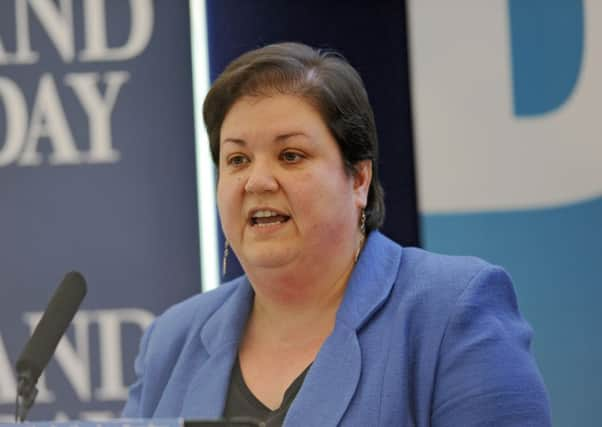'˜Stark choices ahead' for councils amid budget reductions


The Accounts Commission found that local authorities have coped well so far but face increasingly difficult decisions as they work to make ends meet.
It said the local government funding settlement has “significantly increased” the scale of the challenge in 2016/17 and beyond and has “substantial implications for services to the public, councillors and the local government workforce”.
Advertisement
Hide AdAdvertisement
Hide AdCost pressures and increasing demands on services from an ageing and growing population mean councils “face increasingly difficult decisions about how best to spend their reducing budgets” and need to be open to all options for delivering services, the report found.
It has made a series of recommendations around issues such as long-term financial planning and delivering services differently.
Commission chair Douglas Sinclair said there has been a dependency on incremental changes to services, increasing charges and reducing staff numbers in order to make savings.
“But these are neither sufficient nor sustainable solutions set against the scale of the challenge facing councils,” he wrote.
“Cuts can only be part of the solution. What is required is a more strategic approach, longer-term planning and a greater openness to alternative forms of service delivery.”
The commission’s annual overview of local government states that councils’ revenue funding from the Scottish Government will reduce by 5 per cent in the next financial year, bringing the real terms reduction in revenue funding since 2010/11 to 11 per cent - at a time when they face additional financial pressures and greater demands on services.
The Scottish Government disputes the figures and puts the revenue and real terms reductions at 4.6 per cent and 8.3 per cent respectively.
Councils’ debt has also been increasing since 2011/12, the report said, and many councils predict gaps between their income and spending in future years - something the commission warned may threaten their financial sustainability if risks are not well managed.
Advertisement
Hide AdAdvertisement
Hide AdThe body recognised the “achievement” of councillors and staff in meeting the challenges to date, noting that councils have continued to balance their budgets each year by reducing their spending.
It said councils’ responses to budget reductions so far have mainly focused on incremental savings to existing services, but concluded these are neither sustainable nor sufficient solutions.
Effective medium-term (three to five years) and longer-term (five or more years) financial planning is critical for councils, it said.
“In the face of further funding reductions, councils should be evaluating options for more significant changes to delivering key services,” the report stated.
“Councils need to be more ambitious in their plans, better at longer-term planning, and willing to appraise all practical options for delivering services more efficiently and effectively. This includes empowering and supporting local communities in delivering local services.”
The Accounts Commission also warned that - in light of past and planned staff cuts - councils must ensure they have people with the knowledge, skills and time to develop and deliver effective services in future.
A Scottish Government spokesman said: “The figures in the report are incorrect. The actual figures, taking into account the addition of the £250 million to support the integration of health and social care, show that next year’s reduction in local authority overall estimated expenditure is less than 1 per cent - and that does not take account of the additional money that we are investing in educational attainment over and above councils’ core school budgets.”
The spokesman added that the council tax freeze has been fully funded, with independent analysis finding that the freeze has actually been “over-funded” by ministers.
Advertisement
Hide AdAdvertisement
Hide AdLiberal Democrat leader Willie Rennie warned that compulsory redundancies “will only increase as local authorities seek to make up the £500 million shortfall in funding next year”.
Labour’s Jackie Baillie said: “These cuts simply aren’t sustainable.”
Kevin Keenan, finance spokesman for council body Cosla, said: “The report identifies that councils quite rightly have had to make savings but, even with these savings councils have improved their performance overall.
“Yes councils can always do more to deliver services differently and the report amply demonstrates the degree of innovative delivery approaches which councils are taking already.
“But as we have sought to point out to the commission, it is all well and good saying that councils need to be more innovative. It is quite a different proposition when they are faced with increasing central direction over how they deliver services which focus on inputs, rather than outcomes for our communities.”
